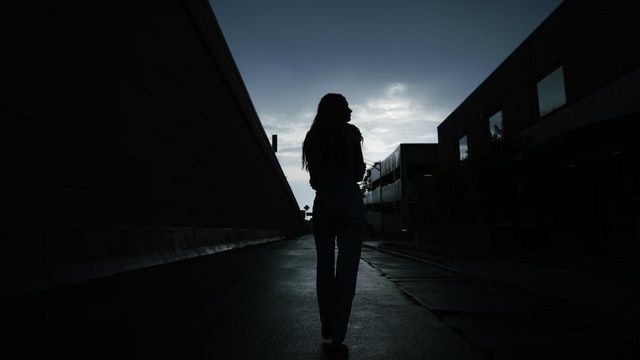
The war in Ukraine has been met with incredibly high levels of empathy, a readiness to help and solidarity by ordinary people in other European countries. As well as demonstrations demanding peace and donations of time and money, the crisis has seen private citizens lending a hand by offering refugees shelter in their own homes. This is a double-edged sword for refugees, however: such readiness to help also unwittingly opens the door to people traffickers, creating opportunities for them to exploit the vulnerable situation of the huge numbers of women – and children – seeking help.
WOMEN SEEK REFUGE
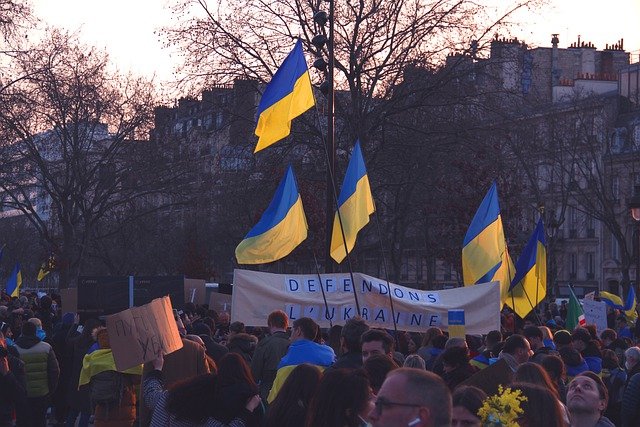
The heartbreaking scenes currently playing out in a nearby country are impossible to reconcile with the thinking behind a united Europe in the twenty-first century. The reports and images currently bombarding us from Ukraine every day are truly shocking. Many people are now fleeing the fighting, crossing the border into neighbouring countries such as Poland, Moldova, Hungary, Slovakia, and even Russia itself. Some refugees are also coming to Germany and Austria. Many are also staying; some voluntarily, some not. Martial law in Ukraine requires men between the ages of 18 and 60 to remain in their homeland to defend it. Many women are fighting alongside them. Voluntarily. Other women, however, are fleeing the fighting, many with children.
PEOPLE TRAFFICKERS EXPLOIT CRISIS
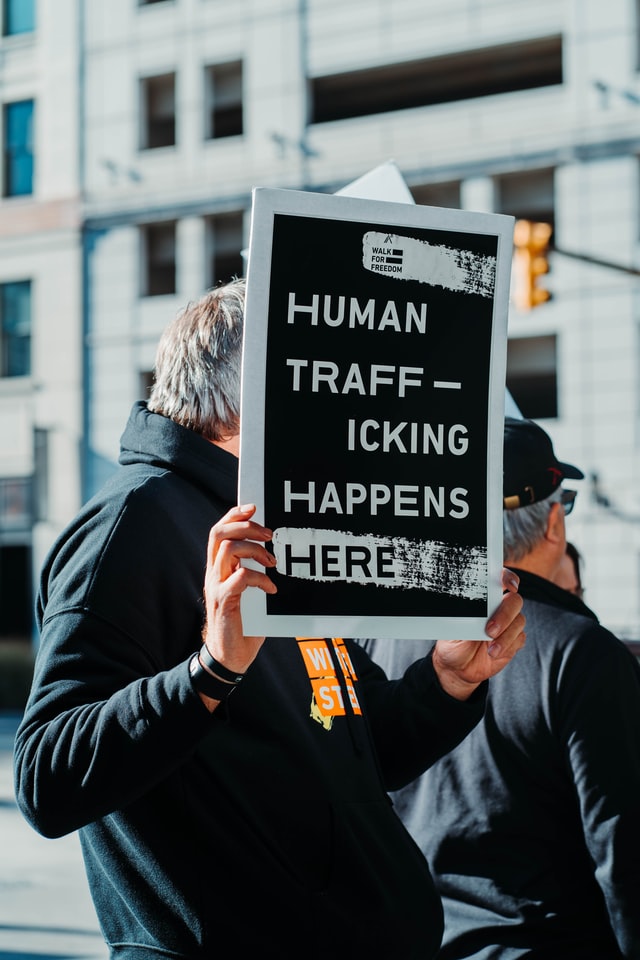
At railway stations and other key arrival sites, private citizens wishing to help wait to greet the refugees and offer them shelter in their own homes. People are closing ranks in an effort to offer total strangers a sofa, guest bedroom or children’s room. We have seen exemplary images of humanity. The flipside of all this, however, is that all those citizens with good intentions are now mixing with people with decidedly fewer scruples. They operate by addressing women, some alone, some with children. They – supposedly – offer shelter, money or other means of help, often speaking Ukrainian or Russian. The fact that they speak a common language creates a connection, a small island of contact in amongst all the chaos and uncertainty. As the female refugees are placing their trust in help from strangers, however, the truth is that sometimes, they are actually being advised by people traffickers. Rather than being offered a place to sleep after all the hardships they have endured, their passport is taken away from them. Refugee women are also particularly vulnerable when online. Dubious offers of help are distributed over social media, and reports of sexual violence have emerged.
HELPING WITH SECURITY
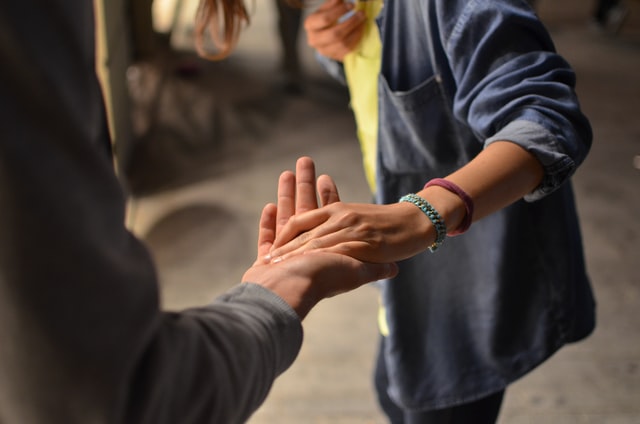
Although the help being offered by private individuals is an admirable gesture, the situation for those arriving is becoming highly insecure as a result. Support from the state and stronger checks are necessary for this to be counteracted. Registering and checking each individual person involves a huge logistical effort. In times of crisis and war, rapid action and immediate help are required. There is no time for bureaucracy. As a result, the more meaningful route is often to donate to organisations or use their coordinating capacity. Established organisations are usually crisis-tested, well-organised, and able to offer targeted help. Amnesty international demands not just more state checks, but also greater state support, so that refugees are not directed towards private help.
THE BEST DEFENCE: AWARENESS
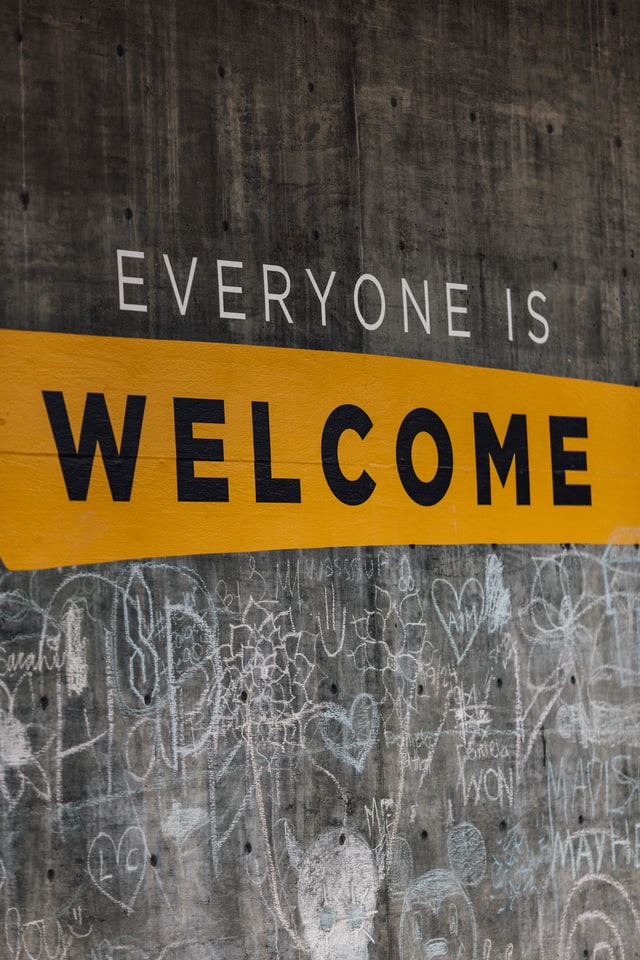
In Germany, police warn people seeking refuge against traffickers, both on the ground at stations and online. A high police presence is also designed to provide greater security. Charitable organisations and associations also try to protect women and their children by providing information and awareness. They hand out brochures at shelters and arrival sites explaining the potential dangers to women and recommending ways of behaving designed to offer them additional protection. Before getting into a car, for example, women are advised to photograph the number plate first, then send it to a trusted person. If they do accept offers of shelter from strangers, they should always insist on being shown the official identification of the person in question, and make a note of their address. They should carry their mobile phone and passport on them at all times, and not hand them over. Where female refugees are taken in, separate rooms should be provided for women and children. In suspicious cases, inquiries should be conducted by the authorities. Offers of psychological help should be as low-threshold as possible. Preventative work by the authorities is also hugely important. It is more crucial than ever before that EU countries proceed in a united way against human trafficking.
SEXUALISED VIOLENCE: A THREAT EVERYWHERE
The Ukrainian NGO La Strada, which campaigns to fight human trafficking and violence against women and children, reports that sexualised violence is rife in the Ukraine. There are said to have been incidences of rape by Russian soldiers, as well as sexualised violence at the emergency shelters and bunkers people have fled to in an effort to protect themselves from the bombardment. Male and female employees of NGOs in Ukraine are themselves caught up in the war, with all its ghastly consequences. Despite this, refugees continue to receive their advice, even if only online at present. Another example of the unconditional support and help currently being offered, both inside and outside the war zone. The wave of empathy and support we have experienced in Europe in the past month is expected to continue. To ensure that help arrives efficiently and in a targeted way, however, it is also important that people check for themselves how and where help can best be offered.
Translation by Tim Martinz-Lywood, European Exchange Ltd.
www.european-exchange.co.uk
